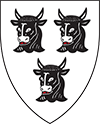Fellows
Anne-Marie LoganReference Librarian |
|
Darcy LowellPediatrics, Child Study Center |
|
James LuAYA, Board of Governors |
|
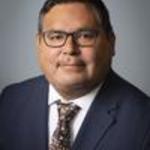 |
Matthew MakomenawNative American Cultural CenterMatthew Makomenaw, is the Assistant Dean of Yale College and Director of the Native American Cultural Center. Matthew earned three degrees from Michigan State University: his Bachelor of Arts, in Psychology; his Master of Arts, in Higher, Adult, and Lifelong Education-Student Affairs; and his Ph.D., in Higher, Adult, and Lifelong Education. His dissertation focused on tribal college transfer student success at four-year Institutions. Over the course of his career, he has created and supported programs to help Native and Indigenous students make the transition to and thrive in college - including summer bridge programs, college access initiatives, pow wows, tribal outreach and student retention and success. Email Matthew Makomenaw |
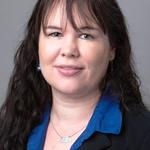 |
Angie MakomenawYale College Student Support CounselorAngie Makomenaw has spent over 19 years in advocacy related fields starting her career as a victim witness specialist with the 18th Judicial District Attorney’s Office of Colorado handling felony level cases. From there she worked for her tribe, Saginaw Chippewa, establishing and creating a comprehensive domestic violence program. Afterward her path lead her to the University of Utah and University of Northern Colorado to establish and support advocacy and prevention education programs. In her free time, Angie enjoys watching high levels of television with her family and enjoying views of the beautiful outdoors from the indoors. |
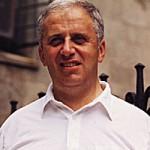 |
Gregory MargulisEmeritus MathMargulis was born to a Russian family of Lithuanian Jewish descent in Moscow, Soviet Union. At age 16 in 1962 he won the silver medal at the International Mathematical Olympiad. He received his PhD in 1970 from the Moscow State University, starting research in ergodic theory under the supervision of Yakov Sinai. Early work with David Kazhdan produced the Kazhdan–Margulis theorem, a basic result on discrete groups. His superrigidity theorem from 1975 clarified an area of classical conjectures about the characterisation of arithmetic groups amongst lattices in Lie groups. He was awarded the Fields Medal in 1978, but was not permitted to travel to Helsinki to accept it in person, allegedly due to antisemitism against Jewish mathematicians in the Soviet Union.[4] His position improved, and in 1979 he visited Bonn, and was later able to travel freely, though he still worked in the Institute of Problems of Information Transmission, a research institute rather than a university. In 1991, Margulis accepted a professorial position at Yale University. Margulis was elected a member of the U.S. National Academy of Sciences in 2001.[5] In 2012 he became a fellow of the American Mathematical Society.[6] In 2005, Margulis received the Wolf Prize for his contributions to theory of lattices and applications to ergodic theory, representation theory, number theory, combinatorics, and measure theory. In 2020, Margulis received the Abel Prize jointly with Hillel Furstenberg ”For pioneering the use of methods from probability and dynamics in group theory, number theory and combinatorics.”[7] |
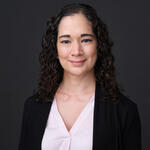 |
Vanessa MartinezVannesa joined the University’s Office of the General Counsel in 2012. Prior to her appointment at Yale, Vannesa served as Assistant University Counsel at Princeton and was an Associate at Milbank, Tweed, Hadley & McCloy LLC. Vannesa earned her A.B. from Princeton University and her J.D. from the University of Michigan. Her work focuses primarily in the practice areas of Labor & Employment, Litigation, and Student & Academic Affairs. Vannesa is a member of the Undergraduate Organizations Committee. She served on the Board of Directors of the National Association of College and University Attorneys from 2015-2018. She also chaired its Latino Lawyers Affinity Group from 2013-2015 and served on the Board Advisory Committee on Diversity and Inclusion from 2016-2018 and 2019-2021. Email Vanessa Martinez |
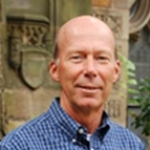 |
William MassaRetired Head of Collection Development, Manuscripts & ArchivesBill Massa’s primary prior work experience was at the Smithsonian Institution Archives in Washington, DC, from 1977 to 1988 when he moved to Yale. He works in Manuscripts and Archives, Sterling Memorial Library, most recently as Head of Collection Development (working with donors to acquire manuscript collections based on our collecting criteria). He also spends a fair amount of time with researchers, including undergraduates, who are in need of primary source materials for an academic assignment, a student publication, or a major writing project such as a dissertation or monograph. As a Trumbull College Fellow, he has been advising freshmen since the late 1990s. This has truly been the most fulfilling part of his life at Yale; he enjoys getting to know not only the advisees assigned to him, and through them, their friends. He also serves as a Personal Librarian to about 35 Trumbull freshmen and sophomores each year. His primary academic interest is Yale history, but he has gained a wide knowledge of primary sources at Yale and searching for related materials beyond Yale. Outside of Yale, he enjoys hiking, snowshoeing (bring on the snow and lots of it!), and collecting early (mid-18th to about the 1820s) American domestic lighting devices. BA, Elizabethtown College; MA, University of Wisconsin, Madison Email William Massa |
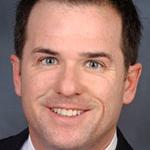 |
Thomas MasseMusicThomas Masse is dean of the Stetson University School of Music and professor of music. A clarinetist, he has performed as concerto soloist, orchestral musician and chamber musician throughout the United States, Canada, South America, Europe and Asia, and has taught at the University of Michigan, the University of Northern Colorado and Yale University. As a university administrator, he is known as a passionate advocate for the role of the arts in education and society. A graduate of Yale University, where he received the first artist diploma ever awarded a clarinetist, Masse earned his doctoral degree at the University of Michigan where he was a Regents Fellow. His primary teachers were David Shifrin and Fred Ormand. In addition, he holds an master of business administration degree from the University of Connecticut and a professional certificate in fundraising from New York University. Prior to his appointment at Stetson University, Masse was the associate provost for the arts at Yale University where he had academic, financial and strategic responsibility for the schools of architecture, art, divinity, drama and music, as well as the Institute for Sacred Music and the Norfolk Chamber Music Festival/Yale Summer School of Art and Music. For nearly ten years, Masse served in a variety of decanal positions at the Yale School of Music culminating in his appointment as deputy dean from 2005 to 2009. He began his academic career at the University of Northern Colorado in 1995 and became the youngest tenured faculty member at the university. |
Diyendo MassilaniGeneticsDiyendo started his scientific journey studying the chemical composition of local medicinal herbs in the laboratory of Pharmacology and Ethnology of the University of Health Sciences in Gabon (Central Africa) under the supervision of Pr. Blandine Akendengué. There, he obtained a Technical Degree of Medical Sciences in 2007. He then went to study in Sorbonne University in Paris (France) and received a Bachelor of Life Sciences in 2010 and a Master of Molecular and Cellular Biology - specialty Genetics in 2012. Fascinated by the idea of studying evolution using DNA from archaeological fossils, he joined the Epigenomics and Palaeogenomics lab of the Jacques Monod Institute in Paris. Under the supervision of Dr. Eva-Maria Geigl and Dr. Thierry Grange, he optimized methods for ancient DNA extraction and high throughput sequencing and developed hybridization-based enrichment approaches to capture the mitochondrial genome of any ancient specie of interest using RNA probes generated from DNA extracted from extant counterparts’ tissues. He applied his methods to study Bovids Evolution and Cattle Domestication and obtained a PhD in Genomics in 2016 from the Paris Cité University. In 2017, Diyendo joined the department of Evolutionary Genetics of the Max Planck Institute for Evolutionary Anthropology in Leipzig (Germany) to work on archaic and early modern human population history with Dr. Matthias Meyer and Pr. Svante Pääbo. In addition, he worked on methods to optimize the retrieval of ancient DNA from sediment and pioneered the technique of local sampling approach using undisturbed blocks of resin-impregnated sediment. Email Diyendo Massilani |
|
Andrew MayTruxton TrustEmail Andrew May |
|
 |
Enrique Mayer BehrendtAnthropology EmeritusBorn in the highlands of Peru to Jewish immigrant parents who had fled Nazi Germany, Enrique Mayer completed his college education at the London School of Economics and received his doctorate from Cornell University. His professional career as a university teacher began at the Pontificia Universidad Católica in Lima, Peru. He later moved to Mexico City, where he took charge of the Department of Anthropological Research at the Inter American Indian Institute. In 1982 he joined the faculty of University of Illinois at Urbana-Champaign with a joint appointment in the Department of Anthropology and the Center for Latin American and Caribbean Studies. In 1995, he became a member of the Anthropology Department at Yale University. Professor Mayer specializes in Andean agricultural systems and Latin American peasantries. His work has shown that regions characterized by diversity (such as mountainous environments, small islands, and “marginal” lands), not suitable for agribusiness, are exploited by peasants in strikingly similar ways. Worldwide, peasant forms of production predominate and persist in these environments. These agricultural systems are important to those concerned about world genetic resources, or about environmental conservation, and to scholars who seek an understanding of ancient and yet also very contemporary Non Western rural life-ways. He is currently collecting “ugly” stories about the agrarian reform in Peru (1969), finding that most people, although they benefited from it, nonetheless feel victimized and regard the reform as a failure. He is also the author of The Articulated Peasant: Household Economies in the Andes (2001). Email Enrique Mayer Behrendt |
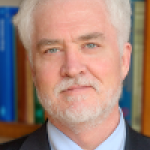 |
Gregory McCarthyPsychologyOur research program is concerned with the functional organization of the human brain. We seek to identify and characterize functional brain processes, and to determine how these processes are evident in psychological phenomena. We are also interested in how these functional brain processes and their anatomical substrates are altered in pathological states. A current and enduring theme of our research is social perception and cognition. We have been particularly interested in the manner in which information about the surface features of animate entities (such as faces and bodies) and information about motion trajectories contribute to inferences about the goals and intentions of social agents. With respect to the brain, these studies have focused on two regions: 1) ventral occipitotemporal cortex, an area generally associated with the perception of visual categories including faces and bodies, and 2) lateral occipitotemporal cortex, and area associated with biological motion. Another research theme is the neuroscience of executive processing and working memory. We are interested in the way that task-irrelevant stressors influence functional connectivity between the amygdala, inferior frontal gyrus, and ventromedial prefrontal cortex when subjects are engaged in demanding primary tasks such as working memory or maze finding. Our methods include neuroimaging (functional and structural MRI, and diffusion tensor imaging), EEG and ERP from scalp recordings in healthy volunteers, intracranial EEG recording and direct cortical stimulation in patients, eye tracking, and behavioral measures.Email Gregory McCarthy |
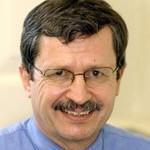 |
Patrick McCrelessMusic Department, EmeritusPatrick McCreless has a Master of Music in Music Theory from the University of Michigan, and the Ph. D. in Music Theory from the Eastman School of Music of the University of Rochester. Before coming to Yale in 1998, he taught for fifteen years at the University of Texas at Austin, where he was Associate Director of the School of Music, and five years before that at the Eastman School of Music. Email Patrick McCreless |
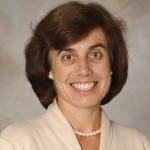 |
Jennifer McNiffDermatologyDr. McNiff is a Professor of Dermatology and Pathology and directs the Yale Dermatopathology service, which receives skin biopsies for diagnosis from around the world. She went to Swarthmore College and then University of Vermont for medical school. When not working at her microscope, Dr. McNiff enjoys hiking, sailing, and relaxing at home with her family, including husband Mike, two children (high school students at Choate Rosemary Hall) and two rambunctious dogs. Email Jennifer McNiff |
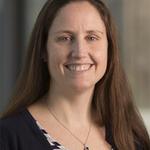 |
Jill McSorleySchool of ManagementJill McSorley is the Director of Facilities Operations at the Yale School of Management. She was an economics major member in the 2003 Trumbull College class. She has recently returned to New Haven after working in El Salvador and Qatar for 11 years and is enjoying living back in Connecticut. Email Jill McSorley |
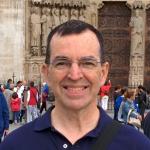 |
James MeehanComputer ScienceJames Meehan studied math & music theory as a Yale undergraduate [BS ‘71] and stayed at Yale to enter the charter class of grad students in Computer Science [PhD ‘76]. He taught Computer Science at UC Irvine for 6 years, then returned to New Haven to work for an AI startup. In 1990, he worked at a research lab in Palo Alto, on a project with Oxford University Press to create a new dictionary whose definitions were based on actual word-usage as seen in documents on the Web. He later went to Adobe and helped to define, implement, and document PDF and Acrobat. He then moved to Google, in the Internationalization Engineering group, which enables Google software to work with every language and every alphabet on the planet. He retired from Google in May 2018. Apart from computers, Jim is a fan of classical music. He studied piano and organ and was the organist for the Yale Symphony as an undergraduate and a graduate student. He returned to Yale in 2016 as organist for the 50th Anniversary celebration of the YSO in New Haven and at Carnegie Hall. As a student, he also sang with the Yale Bach Society, the Glee Club, and many other groups. He lives in San Francisco, where he says there is more music per square foot than anywhere else in the world except New Haven. He serves on the boards of organizations for Baroque music and opera training. Email James Meehan |
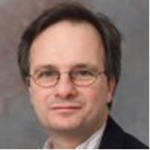 |
Konstantinos MeghirEconomicsKonstantinos Meghir is the Douglas A Warner III Professor of Economics. Professor Meghir’s research interests include Econometrics, Public policy, Labor economics, Economics of education, Microeconometrics, Evaluation of public policy, Household behavior, Retirement and pensions, Income distribution, Consumption, Demand analysis, Investment, Development economics. Email Konstantinos Meghir |
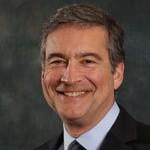 |
Jay MeizlishSchool of Medicine |
 |
Slawomir MejnartowiczYale HealthDr. Slawomir Mejnartowicz, MD is an internal medicine specialist in New Haven, CT and has over 25 years of experience in the medical field. He graduated from Columbia University Vagelos College of Physicians and Surgeons in 1998. Email Slawomir Mejnartowicz |

